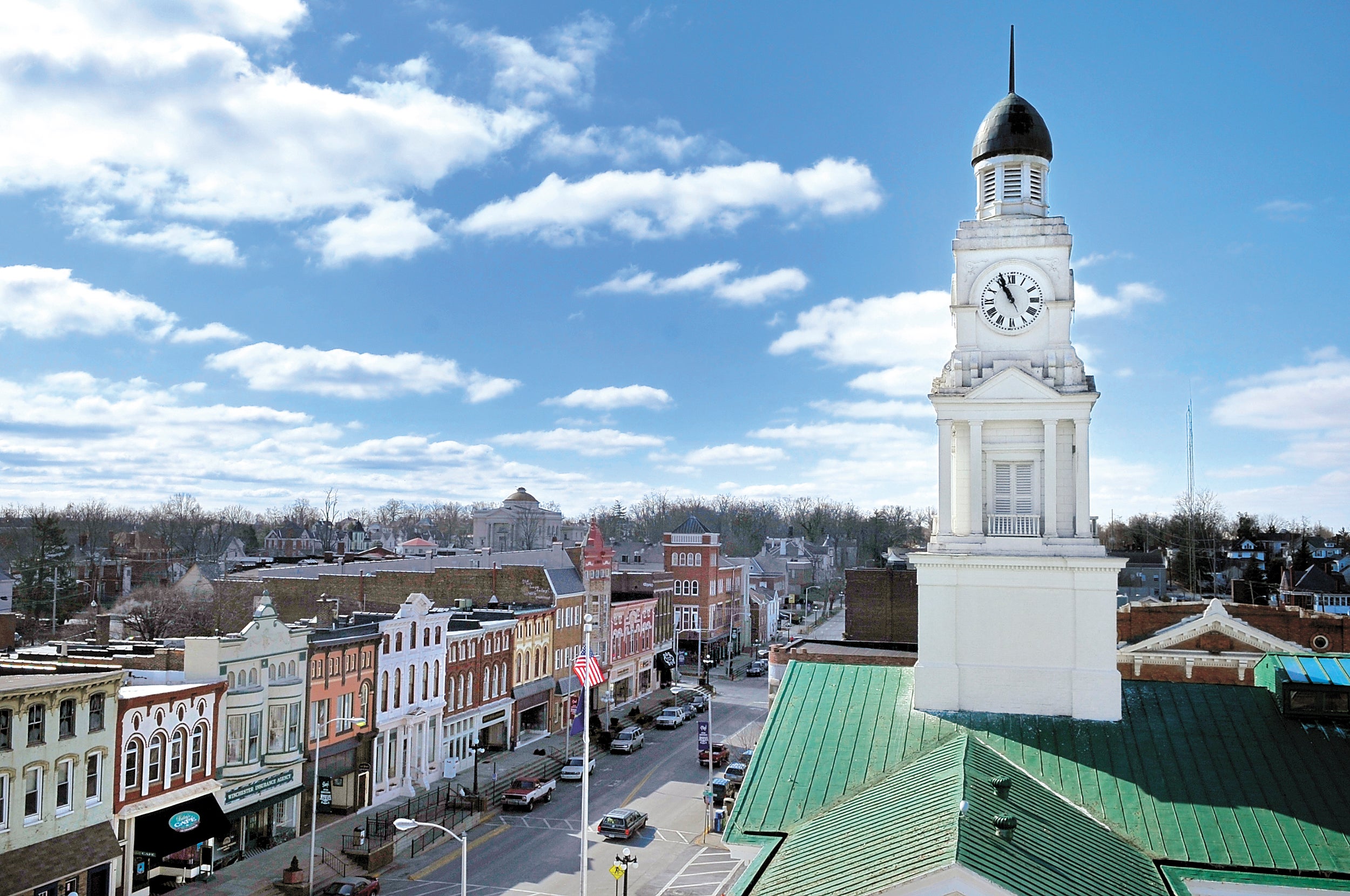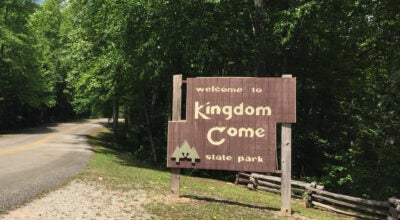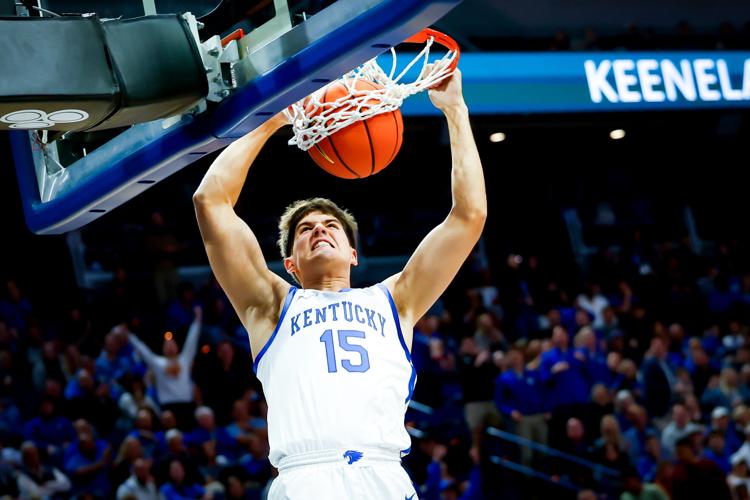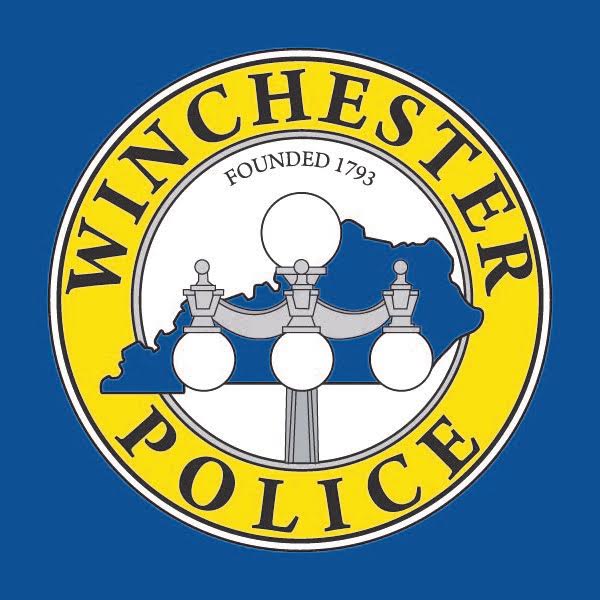Rebirth & revitalization: Winchester not immune to challenges facing downtowns nationwide
Published 9:00 am Saturday, September 16, 2017
Not long ago, Main Streets across America were bustling with activity. They were home to thriving locally-owned businesses — from clothing stores, to groceries, restaurants and even theaters — frequented by nearly everyone in the community.
Although physically a location in many communities, Main Street is a generic phrase that came to describe the primary street where retail was located in small towns and cities. Over time, Main Street became iconic in American culture, a representation of all that was vital and loved in small-town America.
As Louis Hymana wrote in an April 2017 New York Times article, “The Myth of Main Street,” “Main Street is a place but it is also an idea. It’s small-town retail. It’s locally-owned shops selling products to hardworking townspeople. It’s neighbors with dependable blue-collar jobs in auto plants and coal mines. It’s a feeling of community and of having control over your life.”
Main Streets thrived for decades.
But with so much business, came an influx of traffic. And, with the invention of the automobile, cities began to pursue solutions to traffic congestion in downtown districts. Bypasses were built and then shopping malls and strip malls became more popular.
Slowly, big-box retail stores made their way to communities. Locally-owned “mom and pop” stores couldn’t compete and began to close. It is a story told all too often across rural America: “Main Streets are dying.”
Today, the image of Main Street is of unkempt and abandoned buildings and empty storefronts. What were once locally-owned retail locations became home to law offices or courthouse expansions.
Winchester’s Main Street is no exception to this narrative.
Historic photos will show Main Street packed with visitors. Maybe they were headed to one of several theaters — the Leeds included, or the post office on what is now Cleveland Avenue. Perhaps they were staying at the St. George Hotel or seeing a doctor at the Guerrant Clinic. And with the railroad running right to North Main Street, there were visitors from across the state stopping in Winchester.
While some are content to see downtown districts evolve from a community’s retail core to simply a destination for courthouse activity, others are determined to preserve, protect and, in many cases, rebuild and rebrand Main Streets.
Born out this desire was Main Street Inc., a community revitalization program created by the National Trust for Historic Preservation in the late 1970s.
The core of the Main Street philosophy is the historic preservation of downtowns and Main Streets.
Main Street focuses on a holistic approach to revitalization based on the four-point approach of design, promotion, economic restructuring and organization.
Main Street Winchester, a department of the City of Winchester, is the local branch of this program.
Executive Director Rachel Alexander has been with the program for three years and focuses daily on the economic development and revitalization of downtown Winchester.
She facilitates the direction of an 11-person Main Street Winchester board.
“We provide everything from events to education opportunities for downtown retailers,” she said. “We do a lot of marketing and advertising for downtown.”
While on the surface, the biggest problem facing downtown Winchester is a lack of business, the physical environment plays a key role in making the district more visitor- and business-friendly.
Alexander and her team focus not only helping local businesses or recruiting others, but also on addressing issues like accessibility and aesthetics.
“We participate in programs that improve the physical environment in downtown,” she said. “We’ve done things like purchase the trash cans you see downtown on the sidewalks and spearheaded things like the downtown mural series by Phil May.”
In the early 1980s, the board helped achieve the re-installation of the iconic five-globe streetlights along Main Street. The board spearheaded the burial of the power lines on Main Street and Wall Alley. And Main Street Winchester created the “one and only Beer Cheese Festival in the world,” drawing thousands of visitors from across the country.
With all that going on, Alexander is still responsible for heading up efforts to preserve downtown Winchester, a job that is close to her heart.
The appeal of downtowns
Much of the appeal of downtown districts, including Main Street in Winchester, is about nostalgia.
People remember what it was like to be in downtown Winchester in its prime, and they desire to keep that memory alive, Alexander said.
“I think people have an attachment to their history,” she said. “Especially if they are from a community and have family and roots there, they want to see that preserved so that future generations — their kids or their grandkids — can see where their parents and grandparents hung out, where they may have had a business. I think it’s deeply personal.”
Although she doesn’t have roots in Clark County, Alexander has a background in historic preservation and a passion for preserving downtown Winchester.
“Something that really appeals to people about downtowns is the look, the buildings” she said. “But I also think it’s really important to preserve the culture of a place. If you drive down a bypass anywhere in America, they pretty much look the same. You can’t really tell one from another.
“But, when you drive down a Main Street, through a historic downtown retail core, you start to get a glimpse at the different unique things that caused those places to be what they are. If you drive down Main Street in Winchester, you can see how the railroad was connected to the development of the town.”
Alexander said Winchester is particularly special because it has one of only two elevated sidewalks in Kentucky.
“We also have one of the most intact historic downtowns left in Kentucky,” she said. “We only have a few places along the street where buildings have come down for surface parking lots. In other places you begin to see more of a jack-o-lantern smile because of gaps in the buildings. We also just have a lot of really beautiful architecture.”
Protecting that architecture is not only important from a preservation standpoint, but economically and environmentally.
“The greenest building is a building that’s already standing,” Alexander said. “Any time a building is demolished, there’s debris and waste and then fuel, energy and new materials used to replace it. Main Street America has all kinds of studies showing the economic benefits of reusing buildings.
“It’s multi-fold. There are a lot of really good reasons to focus on preserving and development downtown.”
Addressing challenges
With all those reasons to focus on downtown Winchester, there are equal challenges.
The Winchester Sun asked on Facebook for community input on some of the greatest challenges facing downtown Winchester. While each person had their own perception and desires for downtown Winchester, many of the critiques focused on several core concerns: parking, accessibility, aesthetic, code enforcement, attracting businesses of varying types and a perception of increased criminal activity.
In order to tackle these concerns, and others, Main Street Winchester has developed a Downtown Master Plan.
In 2015, Main Street Winchester received a planning grant from the Clark County Community Foundation with the support of the Clark County Fiscal Court and the City of Winchester to create a plan for the future development and revitalization of downtown Winchester.
“The master plan is something that has been talked about for a while,” Alexander said. “When I was hired, the board was ready to pursue this plan.”
Alexander and Todd Denham, treasurer of the Main Street Winchester board and director of the Winchester-Clark County Industrial Authority, took a plan to the Clark County Community Foundation in order to secure funding.
The Foundation approved $100,000 to be reimbursed after the plan is completed. To foot the initial bill, the City of Winchester, Clark County Fiscal Court and Main Street Winchester each contributed funds.
More than 20 firms submitted proposals to develop the plan, and after being scored by a steering committee and interviewing, CityVisions, an architecture and consulting firm based in Louisville, was selected.
CityVisions logged approximately 1,500 hours in the community talking with residents, business owners, property owners and community leaders to learn about what was desired for downtown Winchester. This discussion included three public meetings about the plan. The firm also conducted in-depth research and analysis of economic data.
In April, CityVisions presented a Downtown Master Plan at a public meeting hosted at Leeds Center for the Arts to address the challenges facing downtown Winchester.
The plan included 10 priority recommendations, which largely echoed the concerns of those who attended the public meetings and the recent discussion among Sun readers. Those recommendations include:
— Improved code enforcement and public safety efforts
— New outdoor dining and use regulations
— Establishment of the Facade Grant Program, including ground floor retail space improvements
— Redevelopment of the Sphar Building to include tourist and/or local brand presence
— Creation of the Downtown Investment Fund
— Establishment of a downtown Tax Increment Financing (TIF) district
— Initiation of High Side Linear Park design
— Encouragement of additional market-rate housing
— Unified downtown streetscape design elements
— Enhanced marketing of downtown.
A “pocket guide” regarding the plan and how to address these recommendations was passed out at the meeting, and is available online at winchesterky.com and at city hall. A more detailed 100-page report on the plan is still being fine-tuned, Alexander said.
Now that a plan is place, Main Street Winchester and the city are tasked with implementing these recommendations and addressing the challenges and concerns facing downtown.
Parking and accessibility
When asked what would make downtown Winchester more “visitor-friendly,” parking was a concern for several respondents.
“My biggest complaint is parking,” Lori Barnes wrote. “Anytime there is an event downtown where there is an increase of traffic, then the parking is a nightmare. I shouldn’t have to park a block and a half away from my house because of events going on downtown.”
Rachel Hall, who owns Big Blue Woodworks on North Main Street with her husband Jonathan, said few people are aware of the municipal lots available downtown.
“Parking downtown can be a nightmare at times. I know we have a (parking) lot on North Main, but it isn’t used as much as it should,” she said. “Before we opened our shop, I thought it was private parking only. I’m sure many people think that.”
But from the city’s and Main Street Winchester’s perspective, parking is not a great concern in downtown Winchester.
“When you study how many spots are available, no, there isn’t a parking problem in downtown Winchester,” Alexander said. “But it is something that we hear very often, so it is a problem for some people.
“We think part of that problem may be accessibility. The sidewalks aren’t in great shape, the high side has only one ramp in the middle of the block, so that can be a problem for people with mobility issues. We also think signage may be an issue. For example, the lot adjacent to D&S Hardware is a city lot, but a lot of people don’t realize that. There is a sign, but it’s small. So that’s something that we need to address.”
Winchester City Manager Matt Belcher said he thinks a parking problem is all about perception, or rather misconceptions.
“Could there always be more room for additional parking? Sure,” he said. “But if you look at the amount of retail space and the amount of parking spaces, and then compare it to the downtowns our size, I think we’re pretty similar.”
With two municipal lots — on North Main Street and Broadway Street — on-street parking and spaces behind buildings, Belcher said he thinks there is sufficient parking in downtown Winchester.
“We don’t have a parking problem, we have a walking problem,” he said. “People are less inclined to walk a block or two to a store in downtown, but will invariably park at a big box store lot and walk the same distance to the back of the store.”
On an average day, Belcher said, the municipal lots in downtown Winchester are never at full capacity.
“I just don’t see a need for us to look at building a parking structure or more lots when the ones we have aren’t being used fully,” he said. “Now, there are always ways that we can look at improving and enhancing the parking that we already have in place.”
When it comes to navigating downtown Winchester, Belcher admitted it can be difficult to walk because of the conditions of the sidewalks.
The burden of maintaining those sidewalks falls mostly on the property owner, but Belcher said the city is also working on taking responsibility for the upkeep of the public walkways.
“I would agree that there are accessibility issues on the high side of Main Street,” he said. “We are looking at how we can address those major issues. Based on ordinance, the property owner is responsible for the sidewalks. Also by ordinance, sidewalks are public space, so the public, a.k.a. the city and taxpayers, also share a burden for maintaining those walk ways.”
Belcher said he is in the process of drafting a request for proposals for engineering firms to begin resurfacing sidewalks in downtown Winchester. He plans to take a budget amendment to the Board of Commissioners once those costs have been established.
“If everything goes as planned, we could start seeing some sidewalks resurfaced sometime next year,” he said.
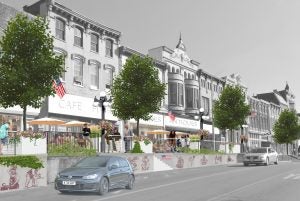
High side park
A primary concern in downtown Winchester is what is referred to as the “high side of Main Street,” where steps lead to the elevated sidewalk on one side of the street. The steps and issues with sidewalk maintenance (pictured below) have led to aesthetic, safety and accessibility issues. Park of the downtown master plan tackles these concerns with the recommendation of the “High Side Linear Park.” The park, pictured above in an artist’s rendering, would include ramps at either end of a terrace enable access for people with mobility issues. SEating along the street’s edge and near the buildings would be added. Stair access would remain but only at specific entry points to the sidewalk area. Plants, trees and lighting would also be added.
Downtown aesthetic and code enforcement
Besides cracked sidewalks, many complain that downtown Winchester needs a basic “facelift.”
“Clean it up,” was a frequent response from Sun readers.
And that is also a concern for city officials and Alexander’s team.
“Some of the downtown businesses have been neglected,” she said. “We are starting to see that change. Several buildings have been purchased and renovated in the last few years and are now in good shape.”
An integral part in addressing this issue is establishing a downtown development fund, Alexander said, that can assist current and future business owners and property owners with some of the necessary renovations to buildings.
“We are raising that money,” Alexander said. “Some of that is earmarked from profits from the Beer Cheese Festival over the past 10 years, but we are also looking for partners for that fund.”
That fund and better-maintained buildings can help attract more businesses downtown, she said.
“Our board actively invites businesses to explore locating downtown,” she said. “We are always looking for more retail and food. Restaurants are difficult because equipping a building with the proper ventilation for a commercial kitchen can be expensive, but we hope this fund can help business owners with some of those expenses in the future.”
“But we are excited to already have some great restaurants — In and Out BBQ, Maddie’s On Main, The Cairn and Broadway Cafe — and also to see Vanessa (Ziembroski) doing work at (The Winchester Opera House) and Steve Atkins renovating at the Engine House with plans for a second location in downtown Winchester.”
Another aspect of the aesthetic of downtown Winchester is code enforcement.
The City of Winchester employs two code enforcement officers tasked with investigating code complaints. However, Alexander and Belcher said the public often has misconceptions about the powers held by this office.
“A lot of people don’t know that our code enforcement department is complaint-driven,” Alexander said. “They go and investigate when a complaint comes in. So if someone sees something that needs to be addressed, they should call.”
Belcher said the city and Main Street Winchester work closely with property owners to encourage property upkeep, but the code enforcement officers are not out actively looking for violations and can only investigate or act on complaints that defy local ordinance.
“People should complain and notify the department, especially if the complaint concerns public safety,” he said. “But there are ordinances in place and in order for the officers to address an issue the complaint has to be about something that is against the law.
“Some people complain about how something looks, but there’s not always something we can do about that if it’s not on the books. There may not be any issues legally for many complaints.”
Perception of crime
As Main Streets across America, Winchester’s included, began to see less business, there is a perception that criminal activity rose, especially after dark.
Alexander said although she often hears this concern, there is little evidence to back up the idea that downtown Winchester has a crime problem.
“We have worked with the Winchester Police Department to increase police presence downtown,” she said. “Every time someone complains, we talk to Chief Kevin Palmer, he pulls the records — what complaints are coming in, what calls have been made, what they have been finding downtown — and generally it doesn’t match up with the perception.”
Winchester Police Capt. James Hall agreed.
“I wouldn’t say there’s any more or less crime in the Main Street area than in any other area,” he said. “It’s close proximity to us, we have a pretty heavy presence up and down Main Street pretty regularly. Our numbers of criminal activity reports don’t indicate that we have serious crime issues in downtown Winchester.”
Regardless, Hall said crime does occur downtown.
“We do have a drug issue, but it’s not more prevalent there than any other place in Winchester,” he said. “We make drug arrests all over the place.”
And in regards to claims of prostitution activity, Hall said the department actively addresses that issue as well.
“There have been issues (with prostitution) in the past,” he said. “We constantly work on that. That and the drug trade, they go hand in hand. We try to monitor the situation and target any prostitution that we see and any people trolling looking for prostitutes.”
Overall, Hall said he doesn’t see downtown Winchester as a dangerous place.
“There is no greater danger to being in downtown Winchester than any other place,” he said.
Small incremental changes
CityVisions’ downtown master plan has recommendations to address each of these issues, and Alexander said parts of the plan are already being put in place.
“The downtown development fund is in the works,” she said. “We are also working on requests for proposals to do engineering and plan for the high side of Main Street to address accessibility and sidewalk issues downtown.”
An upcoming urban loft tour will highlight and uncover some of the potential second-floor residential spaces in downtown Winchester, she said.
“The Sphar renovation project should be going to bid in December,” she added. “And a tax increment financing district which can help fund some of these projects will hopefully be in place by the end of the year.”
Many of the things already happening aren’t largely visible, Alexander said.
“I think we’re going to see small, incremental change over time,” she said. “It will probably be difficult to see for a while and then, one day, we’ll look around and realize a lot has happened. I think that is already the case. A lot of really wonderful things are already going on in just the three years I’ve been here. We’ve seen a lot of great businesses move in. We’re seeing properties change hands and those are tending to be owner-occupied and renovated.”
While those changes are taking place behind the scenes, Alexander said one of the greatest obstacles is changing the narrative about downtown Winchester.
“The narrative has been fairly negative,” she said. “We do have rough edges. I don’t want to say that downtown is completely perfect as it is. We’ve got work to do, but we also have lots of really wonderful things happening downtown.”
One of the greatest assets is the people, she said.
“We have a lot of wonderful people working on programming and businesses and organizations,” she said. “The narrative has been difficult, but we’re slowly changing that narrative and it’s taking everyone working together to do that. We do have a lot of positive things happening downtown from one end to the other. But we need to get people down here to see it and experience it and tell their friends.”
READERS SPEAK OUT
The Sun asked readers on Facebook: “What are some of the greatest challenges facing downtown Winchester?”
Below are some of the responses.
“I can see potential in downtown. Clean up the buildings, we need evening restaurants, more attention to detail.”
— April Justice
“I understand the sidewalks in front of the stores/buildings are the responsibility of the owners BUT it would really perk up our downtown area if the city would restore ALL of Main Street sidewalks… Pressure wash the steps, new concrete on the sidewalks, etc. Just generally give it a facelift.”
— Shirley Prewitt Readhimer
“I love Winchester. But fixing downtown is like putting lipstick on a pig. Old structures, no parking, people of questionable character. Those things will need to be fixed to attract more people downtown.”
— Tim Mobley
“I love downtown! Moving in the right direction. Can’t wait to see the Sphar building restored and a shelter for Farmers Market. If I had a gazillion dollars I’d buy up the buildings on north Main and restore them.”
— Molly Stotts
“Only having one wheelchair ramp to the high side. I was downtown for an event with my baby and I had to park and then walk in the street to the one and only ramp. Dangerous for pedestrians and those in wheelchairs or strollers.”
— Rebecca Bailey
“I live one street off Main, which is great, usually. However what I’ve seen is an increase of “vagrants” on the sidewalks. A better police presence downtown would be more welcomed.”
— Lori Barnes
“I know a business that wanted to invest in downtown Winchester but can’t because the building codes haven’t been kept up and repairs on the buildings and putting in a sprinkler system makes most of the buildings too expensive to repair even if the building were free. This is disheartening.”
— Martina Hensley
“Lower prices on the buildings since they’re not in the best shape and need some love to bring back to life. No one wants to rent out a space or buy with those crazy high price tags on them.”
— Katie Rogers
“As a former resident, and recent visitor after a 12-year absence, I gave this some thought.Winchester is in a unique position to refurbish its old-world charm and simultaneously bring in new industry. Winchester needs to entice new businesses to come in and clean up/restore the old buildings. They would beautify the downtown area and bring in new jobs. Perhaps the city could offer some tax incentives to bring in the new small businesses.”
— MandiLee Turner
“We need accessibility. We don’t get to do anything other than street dance-type things because of the stairs. I do not want to park behind buildings and walk that far with a medically-fragile five-year-old while toting a one-year-old.”
— Jennifer Miller


